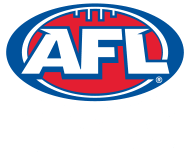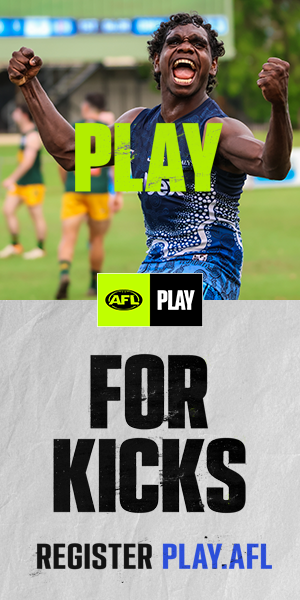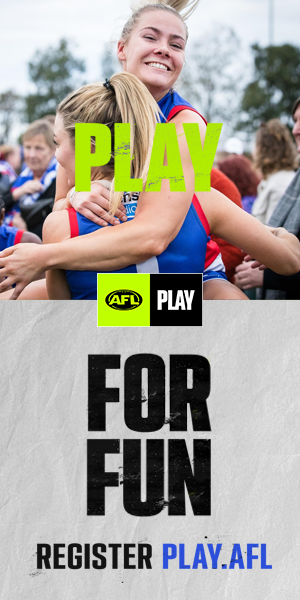By Myles Stedman
This story first appeared on neafl.com.au
It’s Thursday October 10, 2002. Brisbane International Airport. The Morningside Panthers are meant to be here with their coach John Blair for their flight to Bali, but they’re not.
Three days later, two bombs exploded at Paddy’s Pub and the Sari Club at Kuta Beach, some of the famous venues Blair and his squad were expecting to pay visit on their end-of-season trip to Indonesia.
Fate intervened, and they weren’t there.
Instead, a week later, Morningside are off to Cairns for five days instead of Indonesia for 10, where they will visit the Great Barrier Reef, go whitewater rafting, and according to their coach, “form an unbreakable bond”.
“On Sunday we went to a resort at Port Douglas, and there was a little chapel with an outdoor wedding area,” Blair recalled.
“I still don’t know how or why this happened, but right on midday, all the players formed in a circle and bowed their heads.
“Some spoke about how lucky we were to be there and not coming home in body bags, and how grateful we should be for the opportunity to be together.
“That group only lost one game for the year, as did the reserves. We won the premiership, and we went back-to-back the next year.
“It was a really strong bond formed by a group, and that’s the spirit you try and create around a footy club, and fate delivered that. It was pretty sobering how every player from then on had a different respect for each other.”
Blair is skipping over a fair bit of his own brilliance through the telling of this story. He does it a lot, I learn.
Evidently there’s more that goes into winning premierships than team bonding trips, as we’ll also soon learn.
However, that’s how Blair prefers to reflect on his almost unparalleled coaching career – through group successes, partnerships, relationships formed between himself, his subordinates, and his players, and of course, his family.
This is the lens with which Blair sees his 37-year, multi premiership-winning career through. The lens of relationships, and how important they are to what he does – but we’re skipping ahead here.
****
37 years is a long time in AFL. Let’s let the man himself tell you just how long.
“I’m now coaching guys who weren’t even born until 10 years after I’d started coaching. I can probably name eight or nine guys I’ve coached in the last five to 10 years whose fathers I coached also,” Blair said.
“Nowadays players don’t appreciate meetings that go for more than 20 minutes, they’re not as receptive to paper handouts any more, so you have to realign yourself, re-adjust, keep evolving as a person and as a coach.
“Things have changed in that regard, but most players still crave being told how to win and being shown the pathway to success, and I think your main job as a coach is to be a facilitator of those.”
Blair should know. He began preparing for his coaching career back in his playing days for the South Melbourne Swans in the VFL.
“As a player I always had a desire to help my teammates, and to one day be a coach,” he said.
“I always used to write down feedback, I wrote down how I felt after coaches had spoken to me, and kept it for future reference, and I think a lot of it has come into fruition over the years.”
Beyond note-taking and studying what made his own coaches successful, Blair’s own prosperous playing career in the QAFL upon his move to Brisbane in 1981 equipped him with some of what would be required later on in life.
A Grogan Medal and Ray Hughson Trophy added to his reputation as a fiercely competitive and creative half-back, who represented Queensland on 19 occasions.
Blair returned to coach Morningside in 2002 where the Panthers reached the Preliminary Final or higher in a staggering nine consecutive years, including seven grand finals for four premierships, and overall coached the Panthers on QAFL league-record 328 occasions.
“Morningside were probably a bit of a basket case in the couple of years leading into (my arrival),” Blair said.
“The first year we made a Preliminary Final, then three Grand Finals and another Preliminary Final without a premiership.
“You learn a little bit about resilience, about effort, you occasionally get let down by a couple of players who didn’t care enough, so it was about developing team-first attitudes and making efforts to be there for your mate’s back.
“I learned from being at the Brisbane Bears for three years under Robert Walls, and Morningside were in trouble and needed a head coach, so the reason I went back was I felt a community obligation to not let them fall apart too much further.
“I wanted to ensure my son and his friends had a good senior club to go to, so I was lucky enough to go back to a club that had no money but had a good spirit that could be built on, and had a nursery of good young players coming through.
“Our success at Morningside in that time was phenomenal in that in one of our premiership years, we were actually threatened by the AFL to be fined for failing to meet the salary floor – we had that little money, that few resources.
“We were able to turn that into our advantage in that we got a group together that constantly had each other’s backs and constantly reminded each other of the workload required for success.
“I was lucky enough to be the right man at the right place at the right time and the results started to flow.”
The above quote might seem like an oversimplification of what Blair has been able to achieve, which includes a NEAFL premiership with Aspley, four QAFL premierships with the Panthers – including two back-to-back efforts – and 21 finals series overall.
Whilst he may play it off, Blair’s ability to inspire men at almost every different level has punctuated his coaching career, and points to why he almost hit four decades of service time before calling it quits.
Now into his 60s, he has learned the value of inspiring and empowering his staff and the people around him, at the effect this has on success.
When asked if his ability to relate to people had helped him hang around so long, Blair answered non-pensively, “without a doubt”.
“I’ve been fortunate enough to have some really good people come and go who have always stretched me and challenged me to be better and ultimately make the playing group better,” he said.
“We never got comfortable, we enjoyed our success, but then it was about setting a new challenge.
“I’ve found a lot of the time you can reinvent yourself, but sometimes you need to move on and reinvent your coaching staff.
“In my time I’ve had at least half a dozen assistants go on to coach QAFL, I’ve got another about to start next year; they’ve all brought quality to the program I’m running, and as a result, I get results from their quality.”
Pondering whether he thought it was difficult for some coaches to not trust their assistants entirely for fear of undermining themselves, Blair pointed to the opposite effect that has.
“You’ve got to have belief in them running some of your program and taking control and not just be someone moving cones around at practice,” he said.
“If you appoint someone to a role, you encourage them with the best opportunity you can give them to do what they want to do, and you’ve got to feel comfortable with them on your staff.
“All coaches have egos, it just becomes how much you’re comfortable to share of your workload and responsibilities with your subordinates, and you have to develop that trust and respect so that they feel comfortable contributing.
“At the end of the day, you all get to share in the glory no matter whether one’s contributed five percent or 40 per cent more than the other. I can’t say that I’ve ever had anyone in my time that I haven’t trusted or felt comfortable with.”
Almost as if reminding me it were some stroke of luck, Blair again repeated, affirming he was no miracle worker, “sometimes you are the right person at the right time.”
****
Blair left Morningside at the end of 2011 – the NEAFL’s inaugural season – and joined Aspley in 2013.
When he took the reins at the Hornets, they were coming off the back of a second-last placing in the NEAFL. By the end of his first season in 2013, they made the Grand Final. A year later, they won the premiership in dramatic fashion against Sydney.
Blair was also a NEAFL representative coach in 2015 and 2017 – guiding the league to a historic first representative victory against Tasmania in 2015.
Returning to the present day, it struck me how sudden Blair’s departure came from football – like that, he was gone.
However, understanding a little bit about why he was so successful in the first place, and the philosophies he embraced, it almost made perfect sense.
But, unable to hold my tongue, I had to ask to ask him – why now?
The answer did not disappoint.
“The last 10 years I’ve been saying this is my last year,” Blair chuckled.
“There were times at Morningside where I kept saying one more, one more, and then you win a flag or you lose a flag and you say you’ll go for another year.
“At the start of the season I was probably no better than a 50 per cent chance of coaching next year, I personally had one or two health issues, nothing major, but enough to make you’re no longer bulletproof.
“It didn’t affect my ability to do the job or anything, it just opens your eyes to the fact you’re 63, you keep thinking you’ve got a lot of years left to go see the rest of Australia and the rest of the world, and maybe you haven’t.
“Footy coaching takes up a lot of your time, I’m very lucky I’ve had wonderful support from (wife) Maureen and the kids, but obviously there are things I missed out on in family life, and hopefully they would’ve learned things indirectly from my coaching.”
Knowing I wouldn’t have to ask, that sooner or later the information would be volunteered, it’s clear how proud John is of the rest of the Blair clan, as he is absolutely entitled to be.
“You don’t meet too many successful coaches who don’t have a solid relationship, and I’ve been fortunate enough to have a very good life partner who’s been a fantastic rock on which to build a foundation for any successful career,” he continued.
“I owe more than I can ever give back to my kids, but mostly Maureen – when football teams brought in John Blair as coach, they really got a two-for-one deal.
“Maureen came to Aspley, she’s run the wives/girlfriends/mothers’ events, she’s run the ball at both clubs. When we played Southport and the Lions this year, she’s blown up all the balloons and streamers and put them around the ground.
“(She’s created) an atmosphere of positivity for the players to go out their and do their best and feel loved and wanted, and while I may get the accolades, deep down it’s been far more than me to create that atmosphere for the club to be successful.
“Off the field, we helped create a social ambiance where everyone was at ease with each other, and we realised the best thing we were going to get out of footy was the joy provided with winning.”
With seemingly endless reserves of stick-to-it-ability running in the family, Blair and his wife Maureen have also found time to raise one actress, one singer-songwriter, and one financial whiz kid – all based in different countries.
“For me it was motivational to live off the rebound of the things my kids were doing, what they were able to achieve. They’ve been inspirational, and sometimes as a parent your kids can inspire you,” Blair said.
Blair’s sentiments on the joy of seeing his children succeed closely mirrors that of why he has stuck around footy so long – why the first season made him want to come back for a second, the second a third, and so on.
“What I’ve enjoyed the most is being able to help guys who’ve had a dream to play AFL football either get the opportunity or find the pathway to pursue that dream, through both their hard work and my help,” he said.
“Being able to help them pursue the opportunity to play AFL, or become better players, realise their potential, and become solid citizens, have success in their relationships and develop a work ethic that allows them to go out and be successful.
“I find that as satisfying and motivating as winning premierships or any football success, and I get great joy in seeing guys go on and play AFL or run successful businesses, knowing I helped shaped their lives.”
It becomes clear that while Blair has given so much to football, it has given plenty to him in return.
“Until I received the texts over and over again, I probably didn’t realise until then how much influence Maureen and I had over the lives of many fine young people,” Blair reflected.
“That’s been as gratifying and touching as being a premiership coach.
“I’m extremely grateful to have the time in football that I’ve had, and for the next few weeks I want to go out feeling good and joyful with gratitude for all I’ve been able to experience and contribute to the sport.
“The average lifespan of a coach is four to five years maximum, and I’ve been lucky enough to do it for 37.”
That should say more about who John Blair is than words ever could.
JOHN BLAIR FACT FILE
33 VFL Games (South Melbourne, Fitzroy, St Kilda) 1975-80
Grogan Medal (QAFL) winner 1982
Ray Hughson Trophy (QAFL) winner 1985, 1988
Windsor-Zillmere (QAFL) premiership captain-coach 1988
Queensland representative on 19 occasions
Morningside (QAFL) premiership coach 2003, 2004, 2009, 2010
Aspley (NEAFL) premiership coach 2014
Queensland Under-18s assistant coach 1996-2001
Queensland Under-21s coach 2007- 2010
NEAFL Northern Conference Under-21s coach 2012
NEAFL Representative coach 2015, 2017
Member of the AFLQ Hall of Fame



























































